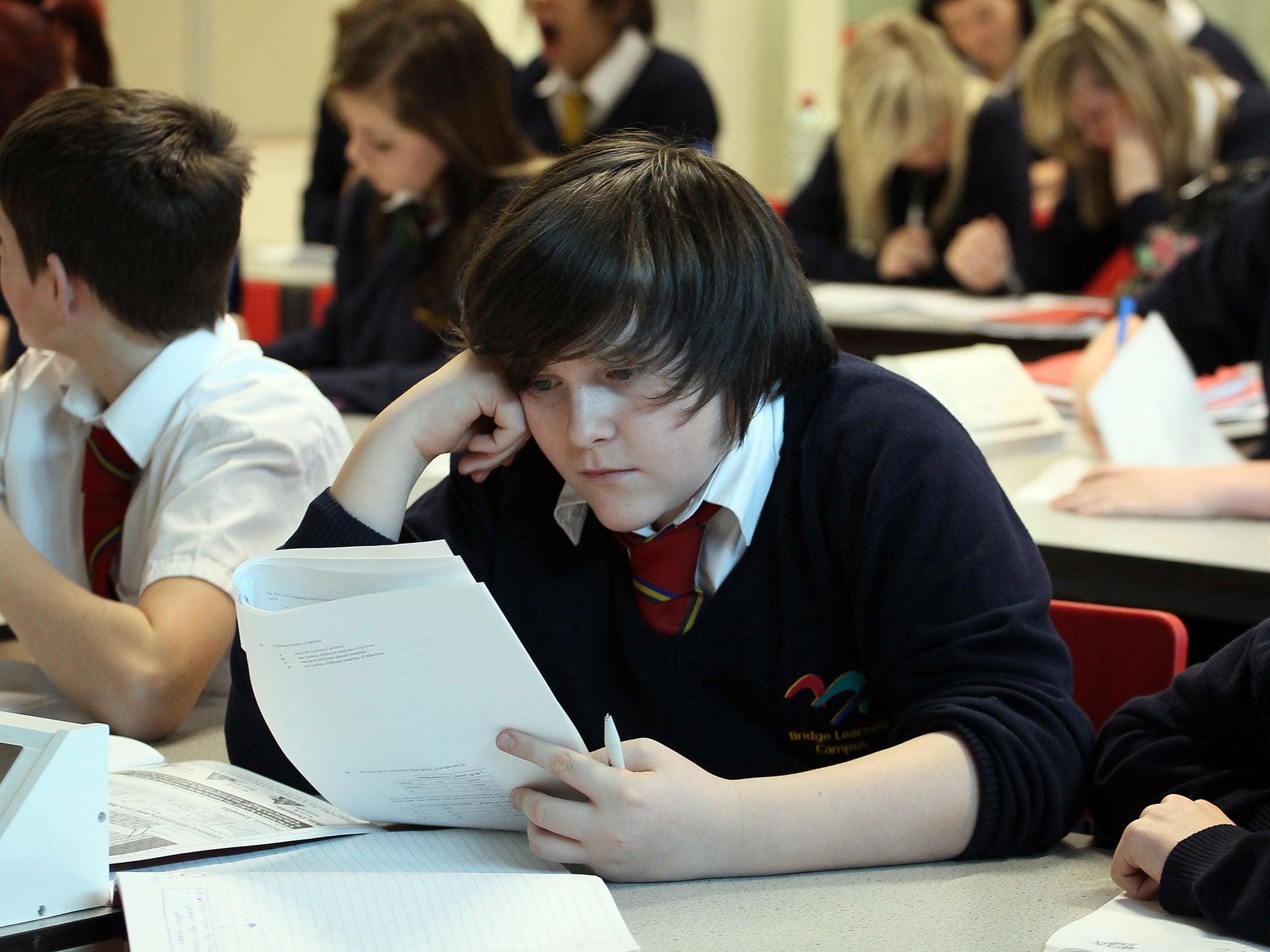Shock slump in English A-level candidates blamed on GCSE marking crisis
Drop results from grade boundary mix-up in 2012

The number of pupils taking English at A-level has slumped this summer, with experts pinning the blame on the crisis over marking GCSE exams in the subject two years ago.
Figures published by the exam boards show a surprise fall of almost 4,000 in the number of entrants as head teachers said many may not have got the necessary grades to pursue the subject to A-level. In 2012, grade boundaries for GCSE English were changed at the last minute, leading schools to claim thousands of pupils had missed out on all-important C-grade passes, after exams regulator Ofqual said the initial pass mark was too easy.
Malcolm Trobe, deputy general secretary of the Association of School and College Leaders, added that a number of pupils expecting A* or A grade passes also did not get them, which then influenced their choice of study in the sixth-form.
“It could well be that they didn’t get the overall grades they wanted for sixth-form, or there was a specification [by a college] about having a C in English which meant they couldn’t go on,” he added.
“It also could be that they were disappointed with their results and decided to do something different.”
Overall, today’s figures showed a rise in most science subjects: physics up 2.1 per cent to 36,096 and chemistry up 1.7 per cent to 53,705; while maths and further maths are up 0.4 per cent to 89,467 and 2.6 per cent to 14,584 respectively.
English and modern languages showed the biggest slump with the number of English entrants falling 4.4 per cent to 86,036, forcing it off its perch as the most popular A-level subject for teenagers, a title now claimed by maths. In languages, the numbers fell by 4.2 per cent to 22,320 with French suffering the biggest drop with 7.5 per cent fewer candidates.
Professor Alan Smithers, director of the Centre for Education and Employment Research at Buckingham University, said: “I think it shows a continuing and worrying decline in languages.
“We’re increasingly relying on people in other countries to speak English - which happily many of them do - but it means we’re not taking the opportunity to enjoy their cultures by speaking to them in their own language.”
He described the rise in science take-up as welcome but added: “It needs to be seen in the context of the take-up in the early 1980s when well over 50,000 took physics for instance.”
The figures showed, though, that a rise in take-up of most academic subjects is on the cards next year as the first cohort to have studied for GCSEs since the introduction of the Government’s English Baccalaureate move on to A-levels. These pupils took AS-levels - worth half an A-level, and sat at the end of the first year of the sixth-form - this year, with the result that entries for geography rose by 16.9 per cent to 55,958, history by 14.2 per cent to 81,843, languages by 6.1 per cent to 39,204, with Spanish recording the biggest increase of 14.8 per cent, English by 9.2 per cent to 132,535 and further maths by 9.3 per cent to 24,402.
Under former Education Secretary Michael Gove’s EBacc, schools are ranked in exam league tables on the percentage of pupils obtaining a top grade A* to C-grade pass at GCSE in maths, the sciences, a language, English and history or geography.
Overall, entrants to the so-called “facilitating subjects”, those sought for entry to the most selective universities, rising by 6.9 per cent to 767,173.
A spokesman for the Department for Education said: “Already the EBacc has reversed the long-term decline in the proportion of pupils studying GCSEs in the subjects most valued by employers and universities and now we are seeing that follow through into AS levels. We expect to see the trend continue into A-level entries next summer.”
Subscribe to Independent Premium to bookmark this article
Want to bookmark your favourite articles and stories to read or reference later? Start your Independent Premium subscription today.

Join our commenting forum
Join thought-provoking conversations, follow other Independent readers and see their replies